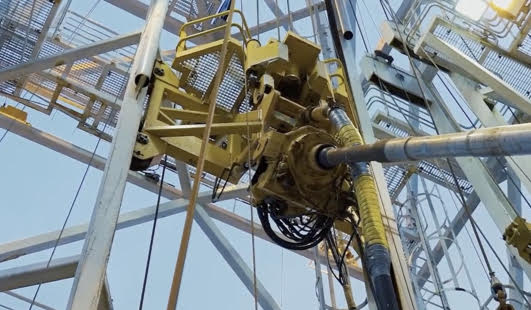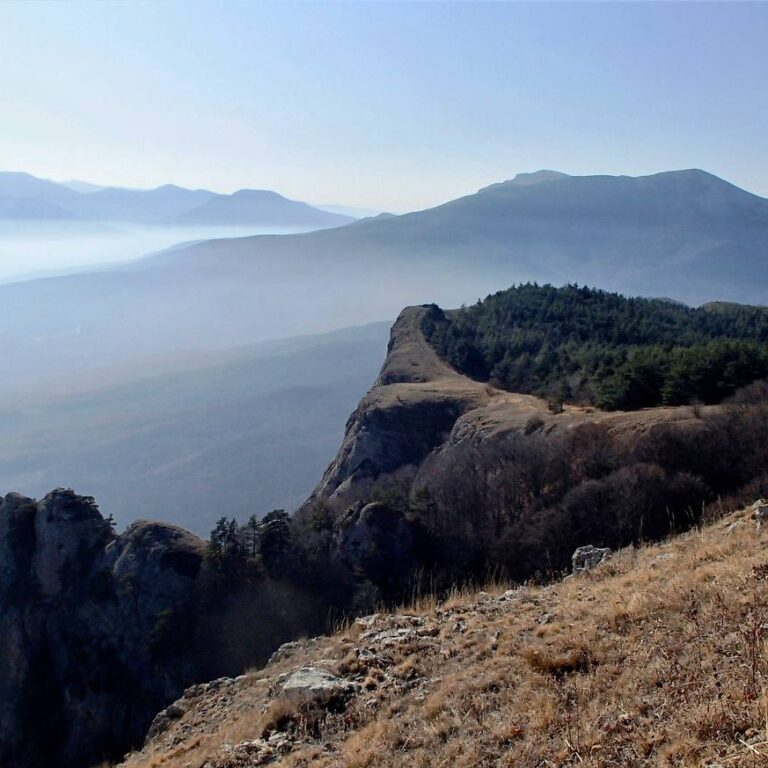On 6 of July article of our Association’s expert, Professor Borys Babin, devoted to the legal qualification of ecologic challenges of Russian aggression in Ukraine, including occupation of Crimea, was published by Turku-located Centrum Balticum in “Pulloposti” edition on Finnish. We present to our readers full translation of this research.
Since 2014 Crimean peninsula, some districts of Donetsk and Luhansk regions, adjacent areas of Black Sea and Sea of Azov were illegally occupied by Russia as part of its ongoing aggression, including maritime one [1].
Intentional and organised Russian “policy” in the Crimea, that violate brutally the collective and individual rights to safe environment, sustainable development and ecologic information, since 2014 included issues of air, water and land pollution from military activities, from chemical industry of Armiansk and Krasnoperekopsk towns, wastes and sewer drains, also as issues of illegal excavation of groundwater, natural gas and building stone and sand [2], [3].
Russia’s “policy” in the Crimea is targeted to destruction as unique local ecosystems so the other nature objects, that become parts of the urbanised spaces. The Crimea’s communal infrastructure is degrading since 2014 in conditions of increasing corruption in the local Russia-controlled “administrations” and of the permanent changes of Russia-appointed “heads” of the Crimean cities and towns [4].
Before 2022 Ukraine reacted on those issues on level on national plans of de-occupation and reintegration of Crimea and initiating international legal proceedings.
On 16 September 2016, Ukraine served on Russia a notification and statement of claim to the 1982 UN Convention on the Law of the Sea (UNCLOS) referring to a dispute concerning coastal state rights in the Black Sea, Sea of Azov, and Kerch Strait [5].
In this case 2017-06 Ukraine requested the Arbitral Tribunal to adjudge and declare, inter alia that Russia is required to provide all due cooperation to Ukraine in the prevention and preservation of the marine environment, including supplying information relating to any oil spill or other pollution incident in the maritime areas where Russia did not challenge Ukraine’s jurisdiction and rights prior to February 2014.
Arbitral Tribunal in its Award on preliminary objections in 2020 found that the Russian’s objection on jurisdiction over Ukraine’s claims concerning activities in the Sea of Azov and in the Kerch Strait does not possess an exclusively preliminary character, and the decision on the merits in this case is not adopted [6]. Ecologic issues were not reflected specially in ICJ and ECtHR proceedings that Ukraine initiated since 2014 regarding Russia’s aggression.
Series of UN General Assembly resolutions adopted regarding the Crimea, such as resolutions 71/205, 72/190, 73/263, 74/168, 75/192 and 76/179 “Situation of human rights in the temporarily occupied Autonomous Republic of Crimea and the city of Sevastopol, Ukraine” and resolutions 73/194, 74/17, 75/29 and 76/70 “Problem of the militarization of the Autonomous Republic of Crimea and the city of Sevastopol, Ukraine, as well as parts of the Black Sea and the Sea of Azov” adopted since 2016 reflected some ecologic issues.
For example resolution 76/179 condemned the reported destructions of natural heritage in the Crimea and concerned about additional challenges for the enjoyment of human rights by residents of the Crimea resulting from disruptive activities of the occupying Power, including the construction of infrastructure projects accompanied by the expropriation of land and depletion of natural resources, which have a negative impact on the physical character of the Crimea.
This resolution demanded Russia to uphold its responsibility, as the occupying Power, on ensuring adequate living conditions in the Crimea, including by ensuring the fair distribution of freshwater resources for the civilian population [7]. And UN GA resolution 76/70 reiterated its concern regarding multiple military exercises of Russian armed forces held in the Crimea and adjacent maritime zone, which undermine regional security and entail considerable long-term negative environmental consequences in the region [8].
Ukraine’s government adopted by the prescript No. 218-r Action Plan, Aimed at Implementation of Some Principles of State’s Internal Policy Regarding the Crimea, cancelled in 2021, but it did not contain issues of ecology.
Later the Strategy of the Deoccupation and Reintegration of the Crimea was approved by decree of Ukraine’s President, 2021 No. 117/2021 and the government’s prescript No. 1171 approved the Action Plan for the Implementation of this Strategy [9].
Strategy contains block “Environmental policy” that included issues of monitoring of the environment in the Crimea, recording facts of environmental offenses and crimes, using mechanisms of international cooperation, holding register of damage, caused pollution and other negative impact on environment, with special efforts on preservation of the maritime environment.
Ukraine’s legal enforcement activities on those issues started earlier, as first investigation on ecocide commenced in 2016 and touched upon the activities of the “Crimean Titan”, an enterprise near Russia-occupied Perekop village, where later, in the 2018 air pollution accident took place.
In 2019, after the 2018 emission, the investigators requalified the case as ecocide and air pollution. The case became much more expansive both in terms of subject matter and charges. Available procedural decisions demonstrate that the case now concerns two other enterprises registered illegally in Russia, but locate in Northern Crimea – “Crimean Soda” Plant and “Brom” Plant, which are part of the same industrial cluster as the “Crimean Titan”. The alleged unlawful activities are claimed to be causing grave consequences, including in the form of misuse of natural resources “by the occupational authorities for their own needs” and environmental pollution.
And before 2022 this was not the only Ukrainian case related with ecologic crimes, committed on Russia-occupied territory. Since 2016, at least three other investigations have been initiated on charges of ecocide. One of them concerned the so-called “Clivage” object – an industrial nuclear explosion site located in a coal mine at the territory of Russia-occupied part of Donetsk Region of Ukraine. According to available procedural documents, illegal “authorities” controlling the site failed to pump groundwater from the nuclear cavern creating a risk of radioactive contamination of local basins, including the Sea of Azov.
Since 24th of February 2022 Russia committed broad and open military aggression to all Ukraine’s territory. Russia-controlled troops and mercenaries committed in Ukraine, during this invasion, gross violation of international humanitarian law and international human rights’ law already, including broad crimes against property, social and cultural rights and environment, attacks on forests, dams, national parks, riparian and maritime ecosystems [10], also as against Ukrainian agricultural enterprises [11].
On 24 March 2022 the UN General Assembly adopted a resolution ES-11/2 [12] expressing concern about the grave humanitarian consequences of a possible accident resulting from the bombing and shelling of the Ukrainian nuclear infrastructure, reiterating the obligation to ensure the safety and security of all nuclear infrastructure, and expressing concern about the impact of the conflict on the environment.
International Maritime Organization (IMO) held an extraordinary session of its Council (C/ES.35) and IMO Council on 10 March in its decision strongly condemned the Russia’s violation of the territorial integrity and the sovereignty of Ukraine, extending to its territorial waters, which represents a grave danger to life and serious risk to the marine environment. IMO Council deplored the attacks of the Russian Federation aimed at commercial vessels, their seizures, including Search-and-Rescue vessels, threatening the safety and welfare of seafarers and the marine environment [13].
Till May 2023 more new war crimes were committed by the Russian troops, including destruction objects of civil infrastructure, forests, dams and other melioration systems by mines explosions, missiles and artillery. Russian forces destroy and loot the technical equipment of Ukrainian forestry and melioration management and of national parks in Kherson and Zaporizhzhya regions en masse [14].
Corresponding negative impacts of Russian aggression against climate include atmospheric pollution due to mass extensive emissions of combustion products, the destruction of thousands of square kilometers of forests and plantations near frontline, as well as natural soils in the combat zone close to the Crimea, the intervention of the Russian occupiers in the melioration management and natural watercourses in Southern Ukraine [15].
Also, the negative impact to climate includes the destruction of ecosystems important for oxygen exchange of the Black and Azov seas due to their pollution by oil products and chemicals from Russia’s naval vessels and their missile ammunition during Russia’s maritime aggression, as well as changes in ecosystems, caused by the mass death of mammals and fish due to noise and explosive pollution under time of sea activity [16].
Special risks arise in this zone regarding potential changes in the hydrogen sulfide layer located in the deep-water part of the Black Sea, and corresponding emissions, in particular due to explosive processes.
On 23 February 2023 UN General Assembly ES-11/6 noted with deep concern the adverse impact of the war on global food security, energy, nuclear security and safety and the environment and urged all UN Member States to cooperate in the spirit of solidarity to address the global impacts of the war on food security, energy, finance, the environment and nuclear security and safety [17].
Ukraine started some new criminal proceedings regarding issues of destruction the ecosystem by Russian troops, with qualification of such activities as ecocide crime, but the whole concept of ecocide crime is not too develop in modern international law and have no conventional protection [11].
Also the above-pointed issues were discussed during the side-event “Impact on the climate change: Crimea, Indigenous Peoples and International Crimes” on Sharm el-Sheikh Climate Change Conference (COP 27) held by our experts together with Crimean Tatar Resource Center and Mission of Ukraine on 17 November, 2022 [18].
Experts stressed on COP 27 that the main negative consequences for the indigenous peoples of Crimea, are the destruction or damage due to climatic changes of natural ecosystems and areas of traditional farming, namely: the desertification of the Western Crimea, the deforestation of the Crimean mountains, the destruction and disappearance of marine coastal aquatic complexes, the collapse of biosystems of the Azov seas, soil salinization of the Central and Eastern Crimea [19].
Experts stressed on COP 27 the duty for the discussion and assessment by intergovernmental bodies, governments of developing countries, nature protection and human rights organizations, and institutions of the world’s indigenous peoples of the forms of direct and indirect negative environmental and economic impact of Russian aggression in the field of climate change and related rights of the indigenous peoples. This issues were reported by ARC experts to preliminary events of World Law Congress, 2023 to be held in New York in July, 2023 [20].
So the issues of international legal and organizational reaction on Russia’s aggression against Ukraine, including international responsibility on ecocide crime, remain extremely important.
- https://www.ohchr.org/sites/default/files/2022-04/Association-Reintegration-Crimea-CFI-WG-Mercenaries-GA77.pdf
- https://www.ohchr.org/sites/default/files/Documents/Issues/ToxicWaste/RightToScience/Submissions/NGOs/arc-crimea.pdf
- https://www.ohchr.org/sites/default/files/Documents/Issues/Environment/SREnvironment/ToxicWastes/CFI-lifecycle-plastics/arc.pdf
- https://www.ohchr.org/sites/default/files/2021-11/ARC_Submission_Responces_Toxic_01_11_2021.doc
- https://pca-cpa.org/en/cases/149/
- https://pcacases.com/web/sendAttach/9272
- https://digitallibrary.un.org/record/3954787
- https://digitallibrary.un.org/record/3952032
- https://arcrimea.org/en/analytics/2023/04/28/legal-programming-of-crimeas-deoccupation-and-reintegration-measurement-of-effectiveness/
- https://www.ohchr.org/sites/default/files/documents/issues/climatechange/cfi-hrc-53-session/submissions/2022-11-28/Association-of-Reintegration-of-Crimea.pdf
- https://www.ohchr.org/sites/default/files/documents/issues/toxicwaste/toxics-indigenous-peoples/inputsreceived/2022-07-13/association-reintegration-crimea.pdf
- https://digitallibrary.un.org/record/3966630?ln=en
- https://www.imo.org/en/MediaCentre/PressBriefings/pages/ECSStatement.aspx
- https://www.ohchr.org/sites/default/files/documents/issues/food/cfi-violence-food/csos/3-arc-crimea-en.doc
- https://www.ohchr.org/sites/default/files/documents/issues/climatechange/food/submissions/csos/submission-climate-change-food-association-reintegration-crimea.pdf
- https://www.ohchr.org/sites/default/files/documents/issues/toxicwastes/cfis/detoxdecarb/submission-detoxification-of-climate-solutions-ngo-arc.pdf
- https://www.securitycouncilreport.org/un-documents/document/a-res-es-11-6.php
- https://arcrimea.org/en/activity/2022/11/20/crimea-indigenous-peoples-international-crimes-and-global-warming/
- https://arcrimea.org/en/activity/2022/11/28/global-warming-as-kremlins-new-weapon/
- https://arcrimea.org/en/analytics/2023/03/24/world-law-congress-occupied-crimea-and-russian-aggression/







